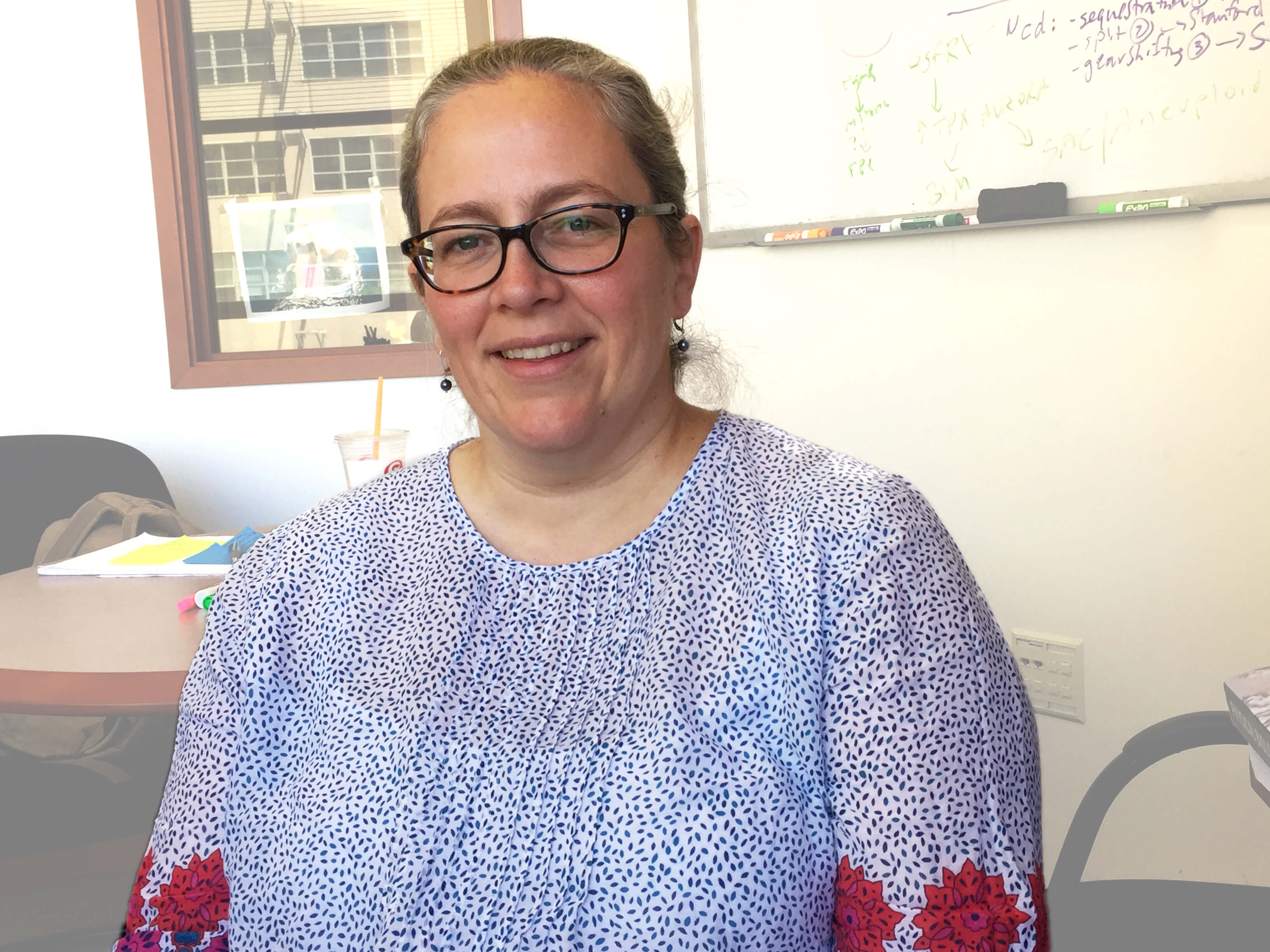
Q: What do you do in your work?
A: My lab studies how cells divide, in particular the role of mechanical forces in this process. We’re trying to figure out how the cell builds from small parts to bigger structures that are responsible for cell division and that segregate the chromosomes.
I’m a faculty at UCSF and I have a lab with eight people. People are very much interested in these questions of how with small parts you build bigger things and how you do this in a robust way and make sure that the system works every time without making mistakes.
We do experiments looking at a single cell that is dividing and at the structures inside it that are powering the segregation of chromosomes. We use microscopes to image cells, needles to poke cells and try to oppose them to see how strong they can pull. Then we use chemicals and genetic tools to perturb the underlying parts that are doing this process to figure out which parts are important for what.
Q: What’s your favorite part about being a scientist?
A: I like this idea of cracking a puzzle and figuring out how nature does it. I’m a detective at heart.
Q: What have you created or discovered that you are most proud of?
A: I’m excited about so many things. For the first paper our lab published, we were asking how the cell builds this machine called a spindle that divides chromosomes. To figure out how the cell builds that machine, we thought we would try to break this machine apart using a laser to cut it up and figure out how the cell rebuilds it in response to this damage. It turns out the cell is able to repair any kind of damage that we can do. That gave us some insights into what specific rules the cell is implementing to decide how to assemble these building blocks into a high order structure.
So basically, the idea is: to learn how things work, you break them apart. It’s a very simple idea, but it’s quite powerful.
Q: At the end of the day, why does your work matter?
A: My work matters for two reasons. One is to discover things about nature. I think to figure out how nature works is important for simply satisfying our curiosity of how things are, and also of course that it might help us suggest some real-world problems.
The other is to train young scientists. I enjoy that part of my work is to see people grow and develop into independent scientists and move on to the next step and give them the skills and confidence they need.
Q: Outside of work, what do you do to relax?
A: I love traveling, eating out at restaurants from all over the world, and I have one-year-old twin girls. I’m more creative and productive as a scientist if I do have a life outside of science. Both parts feed off of each other, I think.
Q: What situation do you think you’d feel the most out-of-place in? What is something that makes you uncomfortable?
A: Being at the start of a marathon race… I would not be doing too well.
Q: In 100 years, what do you want to be remembered for?
A: I think what matters is whether I’m happy with what I’ve done and who I have been, not what other people think. But for me, I want to look back and be happy with what I did, and know that I pushed the understanding of how nature works, and that I helped young people grow up to whoever they wanted to be. I hope that our lab is a supportive environment for young people and an exciting place to do science.